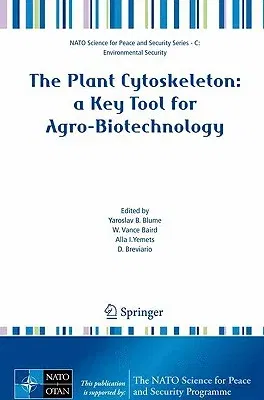The Plant Cytoskeleton: A Key Tool for Agro-Biotechnology (2008)Paperback - 2008, 14 October 2008

Qty
1
Turbo
Ships in 2 - 3 days
In Stock
Free Delivery
Cash on Delivery
15 Days
Free Returns
Secure Checkout
Part of Series
NATO Science for Peace and Security Series C: Environmental
Part of Series
NATO Science for Peace and Security Series C: Environmental Security (Paperback)
Print Length
457 pages
Language
English
Publisher
Springer
Date Published
14 Oct 2008
ISBN-10
1402088426
ISBN-13
9781402088421
Description
Product Details
Book Edition:
2008
Book Format:
Paperback
Country of Origin:
NL
Date Published:
14 October 2008
Dimensions:
23.39 x
15.6 x
2.44 cm
ISBN-10:
1402088426
ISBN-13:
9781402088421
Language:
English
Location:
Dordrecht
Pages:
457
Publisher:
Series:
Weight:
662.24 gm

